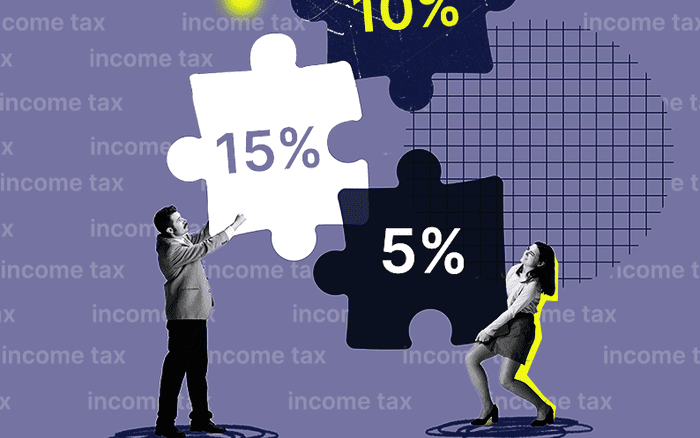
Top 10 New Income Tax Rules FY23: Effective from 1st April 2023
As the new financial year 2023 (FY23) starts on 1st April, the new income tax rules will be also applicable from this day.
The new income tax rules were proposed in parliament by Union Finance Minister Nirmala Sitharaman during the annual Union Budget in February.
All the taxpayers will be affected by these new rules. Though, the proposed new tax rules are a little different from this one, as it is implemented only after making the amendments. All taxpayers must know what the top changes in income tax are.
10 New Income Tax Rules 2023-24:

#1 Default Tax Regime
This is a newly added section in income tax. If a person does not state which regime they will submit their returns under the new tax regime will be the default regime.
#2 Income Tax Slabs
The new tax rates range from 0% to 30%.

- Nil for Yearly salary up to ₹3 lakh.
- 5% – Yearly salary between ₹3 lakh- ₹6 lakh.
- 10% – Yearly salary between ₹6 lakh to ₹9 lakh.
- 15% Yearly salary between ₹9 lakh to ₹12 lakh.
- 20% Yearly salary between ₹12 lakh to ₹15 lakh.
- 30% Yearly salary above ₹15 lakh.
#3 Tax Rebate Limit Raised
The rebate limit has been increased from ₹5 lakh to ₹7 lakh.
#4 Standard Deduction
The standard deduction of ₹50,000 under the old regime remains unchanged and has been extended to the new regime.
#5 Travel Allowance
The leave travel allowance encashment limit has been raised from ₹3 lakh to ₹25 lakh.
#6 Tax on Converting Physical Gold
No capital tax gain if physical gold is converted to Electronic Gold Receipt (EGR), or vice-versa.
#7 No LTCG Tax Benefits
Investment in debut mutual funds will be taxed as short-term capital gains instead of long-term capital gains.
#8 Market-linked Debentures
Investment in MLDs will be considered short-term capital assets.
#9 Tax on Life Insurance Policies
Proceeds from life insurance premiums over the annual premium of ₹5 lakh will be taxable.
#10 Benefits for Senior Citizens
The maximum deposit limit under the senior citizen’s savings scheme extended to ₹30 lakh from ₹15 lakh.
The government has also extended several benefits to senior citizens, including an increase in the maximum deposit limit under senior citizens’ savings schemes and monthly income schemes.

All the taxpayers in India will be affected by these significant changes in income tax rules. People who earn less than ₹7 lakh per year will get benefit from an increased rebate limit.
While on the other hand investors in debut mutual funds and market-linked debentures will not get long-term tax benefits, which slightly affect the investment via mutual funds.
Source: Moneycontrol.com


